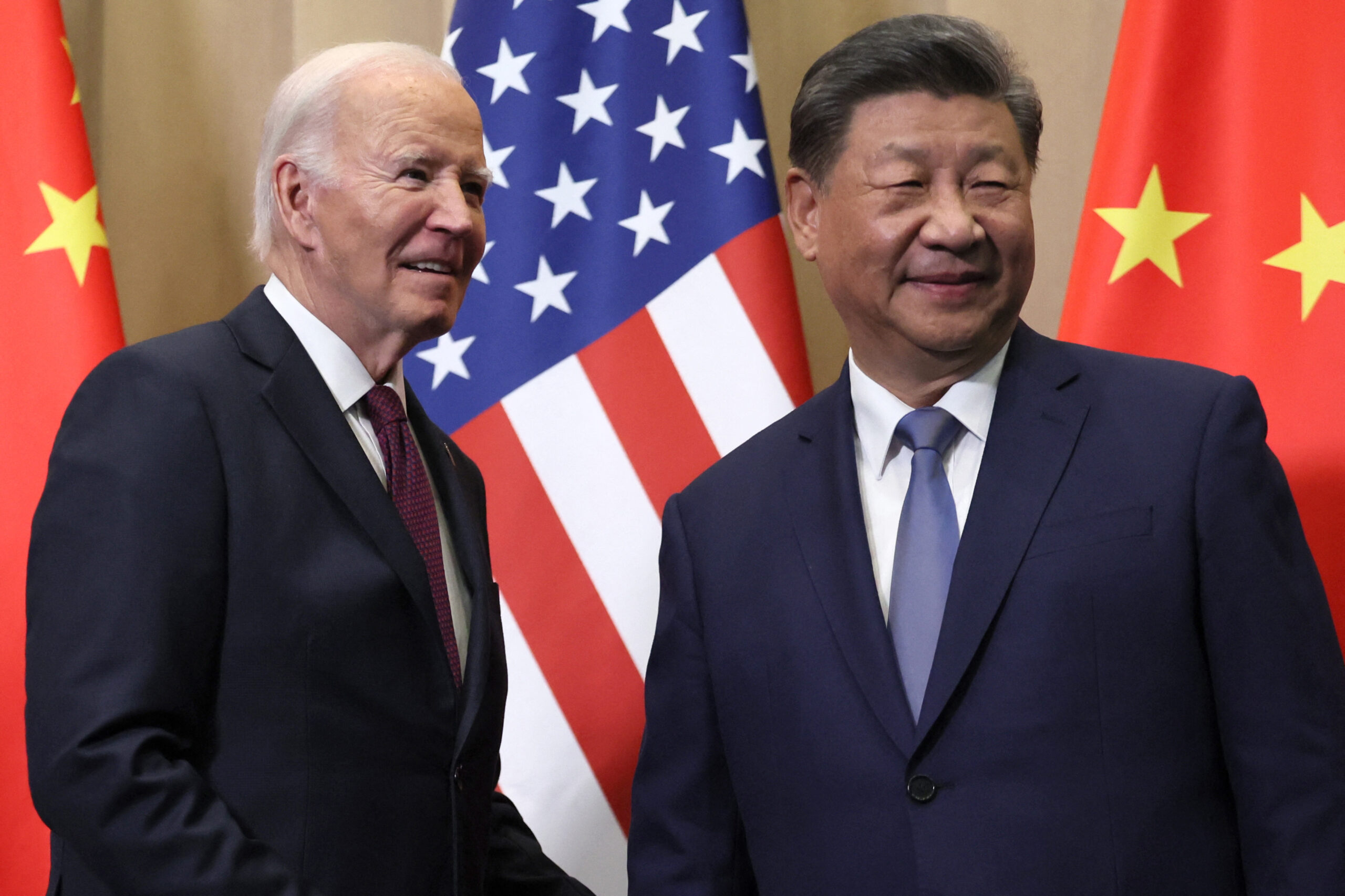Chinese President Xi Jinping laid down red lines during his talk with American counterpart Joe Biden, in what’s being viewed as a message for the incoming Trump administration.
The two leaders met on the sidelines of the Asian Pacific Economic Cooperation Summit, in Lima, Peru, on Saturday for their third and likely final meeting. Xi’s remarks are being viewed as less intended for Biden, now in his lame-duck era, but for President-elect Donald Trump.
Trump has signaled relations with China may be in for a rocky start under his administration. He has tapped China hawks Sen. Marco Rubio (R-FL) and Congressman Mike Waltz (R-FL) to be his secretary of state and national security advisor, respectively. The president-elect has vowed to hike tariffs on Chinese goods as high as 60 percent.
AFP via Getty Images
Xi said “a new Cold War should not be fought and cannot be won” and that attempts at “containing China’s rise” are both unwise and futile, according to a summary of his remarks released by China’s foreign ministry.
The leader stressed the importance of having actions match words and treating each other “as equals.”
“Neither China nor the U.S. should seek to remodel the other according to one’s own will, suppress the other from the so-called ‘position of strength,’ or deprive the other of the legitimate right to development so as to maintain its leading status,” Xi was paraphrased as saying.
He also spelled out four non-negotiable things when it comes to U.S.
One was Taiwan, the self-ruled island China claims as its territory, through force if necessary. Beijing’s Chinese Communist Party-led government has never held power there.
U.S. political support for, and arms sales to, the island democracy are among the most contentious points of friction in Washington’s ties with Beijing.
Xi said that if the U.S. is serious about maintaining peace in the Taiwan Strait, it must “see the true nature of (Taiwan President) Lai Ching-te” and the Democratic Progressive Party. Beijing considers Lai, who took office in May, and his party to be separatists.
The U.S. should handle “the Taiwan question with extra prudence, unequivocally oppose Taiwan independence, and support China’s peaceful reunification,” the statement added.
The other red lines were democracy and human rights, China’s “path and system” and its “right to development.”
Beijing maintains U.S. criticism of its human rights record, including its treatment of Tibetans and Muslim Uyghurs and China’s crackdown on democracy in Hong Kong, as interference in its internal affairs.
Xi also commented on ongoing sensitive issues for the Asia-Pacific region, such as China’s territorial disputes with its neighbors, especially U.S. ally the Philippines, in the South China Sea, which Xi said must be managed by “dialogue and consultation between states” and that the U.S. should not get involved.
He also stressed China remains neutral on the Russia-Ukraine war and referenced the fraught tensions between North and South Korea, which have further risen since the North’s deployment of thousands of troops to join Russia’s war against Ukraine.
“China does not allow conflict and turmoil to happen on the Korean Peninsula. It will not sit idly by when its strategic security and core interests are under threat,” the ministry cited him as saying.
Newsweek reached out to the Chinese foreign ministry with a written request for comment.
Analysts have weighed in on what Xi’s statement signals going forward.
“Xi is attempting to persuade the U.S. that restraining Lai will advance U.S. interests in maintaining peace and stability in the Taiwan Strait. He is dissatisfied with the U.S. response to Lai’s statements,” Bonnie Glaser, managing director of the German Marshall Fund’s Indo-Pacific Program, wrote on X (formerly Twitter).
“The inclusion of democracy and human rights shows China’s increased confidence that its effort to redefine these terms is bearing fruit.”
As for his statement on Korea, Glaser wrote: “Xi is signaling displeasure with expanding U.S.-Japan-South Korean cooperation. This statement comes right after Xi’s comments on Ukraine and suggests that he sees the U.S. as exploiting North Korean involvement in Russia’s war in ways that are threatening to PRC (People’s Republic of China) interests.”
Wen-Ti Sung, a political analyst and non-resident fellow at the Atlantic Council think tank, noted China’s red lines’ were centered on domestic concerns and Taiwan.
Xi was seeking to “set the tone for U.S.-China conversations about Taiwan under the Trump administration,” Sung stated.
The Chinese leader’s messaging also had in mind U.S. partners and allies in other regions, the analyst said. “China needs to be tough on Taiwan so that it can have license to speak softly towards others like Southeast Asia and Europe.”
Before their meeting got underway, Biden praised the progress the two sides had made since their previous physical meeting last year during the APEC summit in San Francisco.
These included cooperation on counternarcotics and the resumption of leader-to-leader military communication, per a White House transcript. The two leaders also agreed that humans rather than AI should remain in control when it comes to using nuclear weapons, National Security Advisor Jake Sullivan told reporters.

